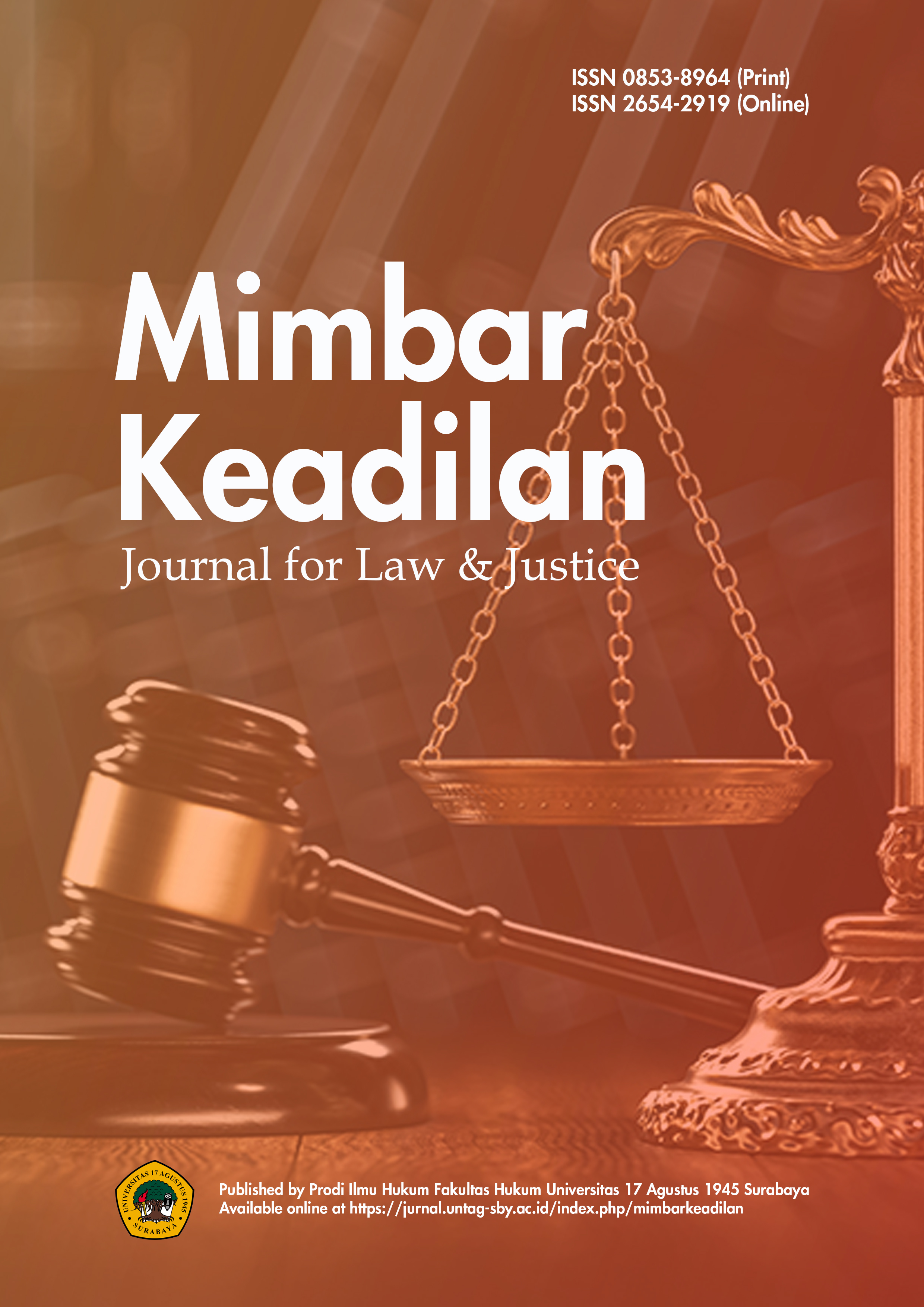Gender Justice Principles in the Islamic Inheritance System
DOI:
https://doi.org/10.30996/mk.v17i2.11022Keywords:
Gender justice, distribution, 2:1, inheritanceAbstract
This study aims to examine the principles of gender justice within the Islamic inheritance system, based on Surah An-Nisa’ verses 11-12, which stipulate a 2:1 ratio (a male receives two shares of the inheritance compared to a female). However, in the modern era, with changing times and human mindsets, as well as demands for equal rights, this 2:1 stipulation is considered a problem of justice. This research is normative juridical research, employing the library research method. The legal materials used include literature studies, such as interpretations of sacred texts, fiqh books, books, journals, previous research results, websites, and other writings related to the issues being studied. The results of this research indicate that justice refers to fair and equal treatment for every individual in accordance with the principles of the Qur'an and Hadith. However, in the context of Islamic inheritance distribution, challenges arise due to social and cultural changes that affect its interpretation and application. Although the principles of justice remain, there needs to be a renewal in the interpretation and implementation of Islamic law to reflect social and economic developments and to advocate for gender equality. This adaptation is not an effort to oppose culture or religion but a step towards a more just society for all individuals, regardless of gender. In making this adaptation, religious values and cultural traditions must be reinterpreted in accordance with the spirit of inclusivity and justice inherent in Islam, so that Islam remains a relevant moral and legal guide for its followers.
Downloads
Downloads
Published
Issue
Section
License
Authors who publish with Mimbar Keadilan agree to the following terms:
- Authors transfer the copyright and grant the journal right of first publication with the work simultaneously licensed under a Creative Commons Attribution-ShareAlike 4.0 International License.. that allows others to share the work with an acknowledgement of the work's authorship and initial publication in this journal.
- Authors are able to enter into separate, additional contractual arrangements for the non-exclusive distribution of the journal's published version of the work (e.g., post it to an institutional repository or publish it in a book), with an acknowledgement of its initial publication in this journal.
- Authors are permitted and encouraged to post their work online (e.g., in institutional repositories or on their website) prior to and during the submission process, as it can lead to productive exchanges, as well as earlier and greater citation of published work (See The Effect of Open Access)














